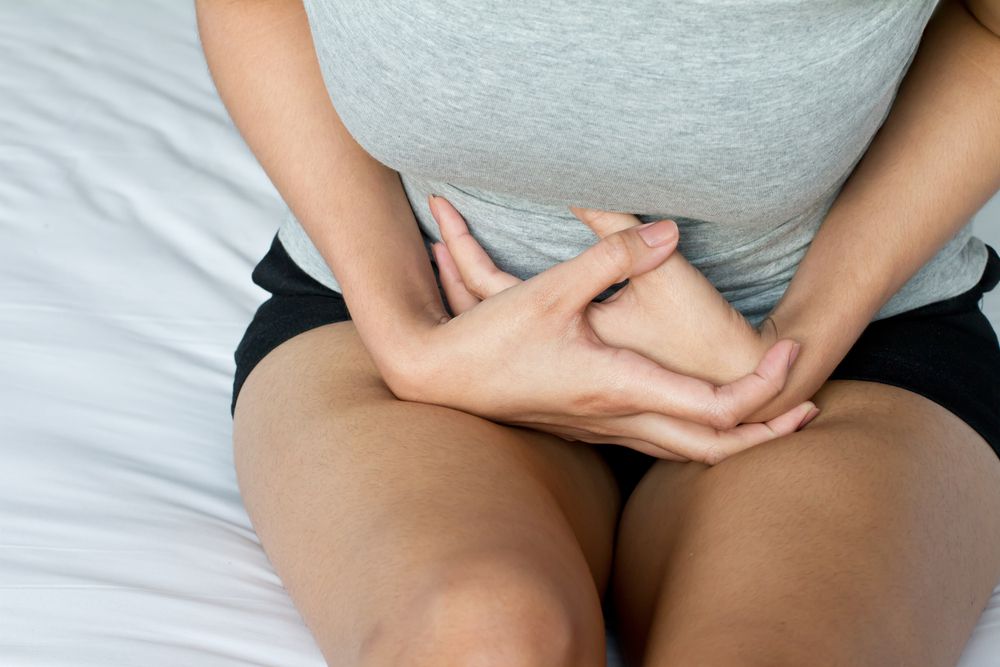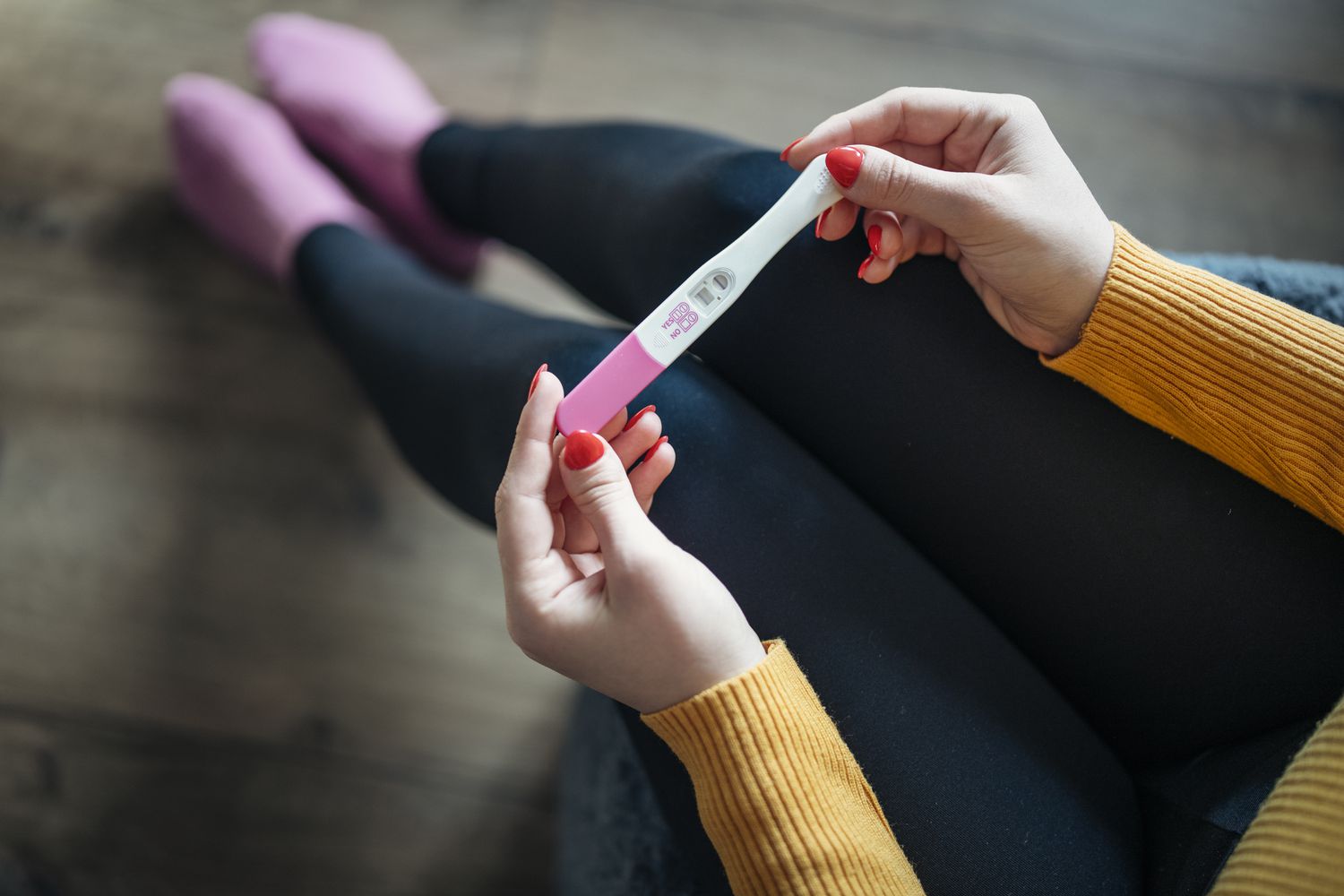The waiting game around a potential pregnancy can be an anxiety-inducing experience when menstrual and early pregnancy symptoms so closely overlap. From cramping and bloating to fatigue and mood swings, it can be difficult to decipher what those body signals are trying to convey. Today we provide a detailed comparison of typical period symptoms vs common signs of pregnancy in the first weeks after conception.

We’ll examine each potential symptom and explore how to identify subtle differences that may give you clearer insights into which situation you’re experiencing. Having this knowledge allows you to interpret your body’s cues accurately and take appropriate next steps.
Contents
Period Symptoms vs Pregnancy Symptoms
The symptoms of menstruation and early pregnancy can be remarkably similar, causing confusion for many women. Understanding the nuances between the two can help in the early detection of pregnancy and in managing menstrual discomfort.
Period Symptoms
1. Cramps
Menstrual cramps are a hallmark of period symptoms, resulting from uterine contractions. These contractions help the body shed the uterine lining, leading to the discomfort many experience. Pain severity can vary widely and often serves as a clear indicator that a period is beginning.
2. Bloating
Hormonal fluctuations prior to menstruation can cause bloating and a feeling of fullness. This water retention is a common premenstrual symptom, attributed to changes in estrogen and progesterone levels, affecting the body’s ability to regulate fluids.
3. Mood Swings
Many women experience mood swings due to the hormonal changes associated with their menstrual cycle. These can range from irritability to sadness, significantly impacting emotional well-being in the days leading up to menstruation.
4. Headaches and Fatigue
Fluctuating hormones before and during a period can lead to headaches and a general sense of fatigue. These symptoms can disrupt daily activities and vary in intensity from one person to another.

5. Breast Tenderness
The hormonal shifts that precede menstruation often cause breasts to feel tender, swollen, or sensitive. This discomfort is typically most pronounced in the days leading up to a period.
Pregnancy Symptoms
1. Missed Period
A missed period is one of the earliest signs of pregnancy for many women. While some may experience light bleeding or spotting, known as implantation bleeding, the absence of a regular period is a strong indicator of pregnancy.
2. Nausea and Vomiting
Commonly known as morning sickness, nausea and vomiting can occur at any time of day during early pregnancy. This symptom is often one of the first signs that may suggest pregnancy, varying greatly in severity.

3. Breast Changes
In early pregnancy, breasts may become even more tender and swollen than they do before a period. Additionally, the areolas may darken, and veins on the skin’s surface may become more visible as the body prepares for breastfeeding.
4. Fatigue
The increase in progesterone during early pregnancy can cause profound tiredness, making fatigue a significant indicator of pregnancy. This exhaustion is more intense than the fatigue experienced before a period.
5. Frequent Urination
An increase in hormonal changes and blood volume can lead to more frequent urination in early pregnancy. This symptom often continues throughout pregnancy as the growing uterus puts pressure on the bladder.

- Mood swings: Irritability, anxiety, sadness, or feeling tearful can occur in both PMS and early pregnancy due to hormonal fluctuations.
- Breast changes: Breast tenderness, swelling, or feeling heavy can happen in both cases.
- Fatigue: Feeling tired and lacking energy is a common symptom of both PMS and pregnancy.
- Bloating: Abdominal bloating and cramping can occur before your period and during early pregnancy.
- Headaches: Headaches are a frequent complaint during PMS and pregnancy.
- Constipation: Digestive changes like constipation can affect you before your period and in early pregnancy.
- Appetite changes: Food cravings or aversions can happen in both PMS and pregnancy, but tend to be more prominent during pregnancy.
- Bleeding: While you won’t have a full period if you’re pregnant, some women experience light spotting or implantation bleeding around the time their period is expected.
Key Differences:
- Severity: PMS symptoms typically appear in the days leading up to your period and usually subside once it starts. Pregnancy symptoms may be milder but tend to last longer throughout the first trimester.
- Bleeding: You won’t have a full menstrual period if you’re pregnant. Any bleeding during pregnancy should be discussed with a doctor.
- Nausea: While some women experience nausea with PMS, it’s less common and severe compared to morning sickness in pregnancy.
If You’re Unsure:

If you’re experiencing symptoms and are unsure if it’s PMS or pregnancy, the best course of action is to take a home pregnancy test. These tests are highly accurate, especially when used with morning urine and after a missed period.
Frequently Asked Questions
How can I distinguish between period symptoms and pregnancy signs?
If you’re not due for your period for another 12-16 days and your last period was normal, it’s likely related to ovulation, not pregnancy.
What are the key differences between period pain and pregnancy pain?
Period cramps are often felt on one side of the lower abdomen, while early pregnancy cramping may be felt across the entire lower abdomen, pelvic area, or lower back.
What does early pregnancy discharge look like?
Early pregnancy discharge may appear white and milky due to thickening of the vagina’s walls, continuing throughout pregnancy as a harmless symptom.
Can pregnancy symptoms mimic period symptoms?
Common symptoms like gastrointestinal issues (constipation and bloating) can be shared between early pregnancy and PMS, but specific nuances like nausea and vomiting are more distinct to pregnancy.
I am a medical student with experience and interest in Women’s health and well-being.